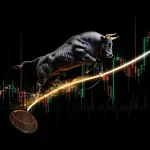Financial Slavery: Break Free with the Power of Mass Psychology
April 9, 2025
The Subtle Shackles of Civilization
In the architecture of modern capital, an invisible scaffolding cages the human spirit—an intricate design of invisible threads spun from debt, social norms, algorithmic nudges, and hollow aspirations. Financial slavery isn’t announced with chains or uniforms. It’s anesthetized with convenience, cloaked in incentives, and enforced through the illusion of choice. People trade hours of life for tokens of survival, rarely stopping to ask who minted the tokens, who set the prices, and who benefits from the churn. It’s a servitude designed to feel like freedom—personalized debt instruments, gamified markets, and status tethered to consumption.
This isn’t about spreadsheets or economic theory. It’s about deep cognitive programming—cultural myths that equate submission with security and equilibriums with morality. But under the surface, there’s movement. Restlessness. An undercurrent of dissonance was growing louder. The cost of obedience is rising. The returns on conformity are shrinking.
The first step out of this systemic quicksand isn’t a tactic—it’s perception. You must learn to see. Not linearly. Not with the mechanical lens of cause-and-effect. But with a kind of vectorial awareness—where thoughts arc across dimensions, connecting disparate signals into psychic constellations. To grasp the system, you must first slip outside it.
Thought as a Fractal Weapon
Here, logic no longer walks in straight lines. It spirals, forks, folds back on itself like a Möbius strip. The mind must become a multidimensional latticework—absorbing contradiction not as failure, but as fuel. Economic bondage thrives in simplicity. Liberation thrives in paradox. You must train your mind to make improbable connections—pair currency cycles with ancient myth, sentiment charts with neural networks, credit scores with medieval fealty.
This isn’t academic play. It’s war. The war is waged in the spaces between the obvious and the ignored. True insight emerges at the periphery—where outlier data meets intuition, where absurdity intersects with signal. Stare into the statistical noise until a pattern stares back.
Financial markets are not governed by “rational agents.” Cascades of emotion, herd impulses, and synthetic narratives rule them. Mass psychology isn’t a theory—it’s the battlefield. If you don’t understand it, you’re not in the market. You’re fodder for it. And if you try to navigate this realm with a blunt instrument of logic alone, you will bleed—quietly, incrementally, until you’re too weak to ask why.
Chaos, Consciousness, and the Currency of Defiance
To break free, you need more than resistance—you need reimagination. Every financial decision is a spell, an encoding of belief into behavior. You are not just spending money; you are affirming the architecture of someone else’s value system. Rebellion starts by redefining value—not in fiat terms, but in psychic capital. Attention, time, sovereignty—these are your raw assets. Everything else is a derivative.
And yes, it will feel chaotic. That’s the point. The system counts on your discomfort with disorder. It herds you toward predictability because prediction is control. But the edge—where volatility lives—is where freedom is forged. Learn to love noise. Find rhythm in the entropy. In that churning chaos, you’ll see emergence—unexpected synergy between dissimilar thoughts, odd strategies that shouldn’t work but do. This is where alpha lives.
Remember: the best trades are paradoxes. The best decisions feel insane until they’re inevitable. Buy when it feels like betrayal. Exit when it tastes like glory. Crowd psychology doesn’t move like a line—it breaks, snaps, or inverts. The mob moves not by logic but by myth, mirror neurons, and raw fear. Learn to anticipate the hallucinations of the collective, and you can make asymmetrical moves while others drown in symmetry.
The Myth of Rational Wealth
The myth of the rational actor was never about accuracy—it was about obedience. It built a worldview that justified the hoarding of resources by those fluent in its sterile dialect. Yet, wealth is never just stored labor. It’s stored story, stored dominance, stored delusion. And most of all, it’s stored belief. If we collapse that belief, the value collapses, too.
To liberate yourself, you must exile the gods of false certainty. Chase the ghosts of the edge cases—times when markets broke their logic, when the narrative inverted mid-sentence. October 1987. The dot-com implosion. The meme stock explosions. These were not anomalies but revelations—glitches in the simulation that exposed the deeper code. You must study these moments not for what they did but for what they meant.
What does it mean when value becomes a joke? When capital follows memes? It implies belief has outpaced logic, and the mob has turned reflexive. In such a world, clinging to rationality is like trying to surf with concrete shoes. You don’t outsmart the market. You out-weird it. You surf the crowd’s illusions, not by joining them but by moving three illusions ahead.
Escape Velocity: From Reaction to Creation
Financial independence is not the endpoint—it’s escape velocity—the power to no longer react but create. To shape the narrative rather than be shaped by it. Act not from fear or greed but from a sovereign logic born of deep self-awareness.
This kind of freedom demands discipline, but not the type taught in textbooks. It’s the discipline of unlearning, the art of resisting easy answers, and he ritual of turning away from dopamine loops, echo chambers, and algorithmic dopamine.
It’s also absurdly practical. Learn a skill that can’t be outsourced. Build a system that doesn’t collapse if the market does. Cultivate mental models that can survive under contradictory information. And most of all, embrace boredom. Boredom is the birthplace of innovation. You can’t spot asymmetric insight if your attention is hijacked 24/7 by digital noise.
Step outside the factory of consensus. Find edge in forgotten places. Trade not just with capital but with curiosity. You are not here to optimize. You are here to rupture. To invent. To render the old game irrelevant through the sheer audacity of your imagination.
Toward a Beautiful, Violent Liberation
We must face a brutal truth: financial liberation is not given. It is seized. It requires ferocity but also grace. You must move like a mythological figure—part trickster, part monk, part general. Know when to charge, when to vanish, when to reframe the entire war.
This isn’t self-help. This is self-sovereignty at full scale. It’s not about budgeting apps or the right ETF. It’s about who you become when the old maps stop working. It’s about the fire you stoke in the silence between market cycles, the boredom between trades, and the strange delight of understanding things you can’t explain in words.
In the end, this isn’t a straight-line march toward wealth. It’s a recursive, looping, chaotic waltz toward something deeper: autonomy, artistry, and anti-fragility. You’re not trying to win the game. You’re learning how to outgrow it. And in doing so, you render the old rules obsolete.













